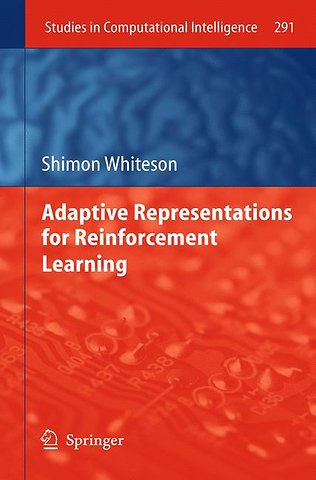Adaptive Representations for Reinforcement Learning
Gebonden Engels 2010 2011e druk 9783642139314Samenvatting
This book presents new algorithms for reinforcement learning, a form of machine learning in which an autonomous agent seeks a control policy for a sequential decision task. Since current methods typically rely on manually designed solution representations, agents that automatically adapt their own representations have the potential to dramatically improve performance. This book introduces two novel approaches for automatically discovering high-performing representations.
The first approach synthesizes temporal difference methods, the traditional approach to reinforcement learning, with evolutionary methods, which can learn representations for a broad class of
optimization problems. This synthesis is accomplished by customizing evolutionary
methods to the on-line nature of reinforcement learning and using them to evolve representations for value function approximators.
The second approach automatically learns representations based on piecewise-constant approximations of value functions. It begins with coarse representations and gradually refines them during learning, analyzing the current policy and value function to deduce the best refinements.
This book also introduces a novel method for devising input representations. This method addresses the feature selection problem by extending an algorithm that evolves the topology and weights of neural networks such that it evolves their inputs too.
In addition to introducing these new methods, this book presents extensive empirical results in multiple domains demonstrating that these techniques can substantially improve performance over methods
with manual representations.
Specificaties
Lezersrecensies
Inhoudsopgave
Rubrieken
- advisering
- algemeen management
- coaching en trainen
- communicatie en media
- economie
- financieel management
- inkoop en logistiek
- internet en social media
- it-management / ict
- juridisch
- leiderschap
- marketing
- mens en maatschappij
- non-profit
- ondernemen
- organisatiekunde
- personal finance
- personeelsmanagement
- persoonlijke effectiviteit
- projectmanagement
- psychologie
- reclame en verkoop
- strategisch management
- verandermanagement
- werk en loopbaan

